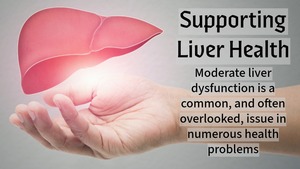
During the winter months, people will take steps to winterize their homes and vehicles. The shut off outside water to keep pipes from freezing and may put snow tires on their car if they live in areas with heavy snowfall. They may also winterize their wardrobe, putting on heavier clothes when they venture outdoors in order to stay warm.
Most people don’t typically think about winterizing their bodies, but perhaps they should. After all, people are more likely to get respiratory infections during this time of the year, which is why the winter months are also known as cold and flu season. People are more likely to get viral infections in general, including sore throats and pneumonia. People with asthma are also more prone to attacks in winter, too.
But there are other ailments that increase during winter months. For example, people are more prone to itchy skin and joint pain during the winter. They’re also more likely to suffer from depression. And heart attacks, a leading cause of death in Western society, are also more likely to happen in winter.
Because most of us enjoy central heating and other modern comforts, we are not as in tune with the cycles of nature as traditional people were. Thus, we often don’t think about the fact that the needs of the body are different in winter than they are in summer. Thus, we don’t make appropriate changes to winterize the body to help us stay healthy during this darkest and coldest time of the year.
So, in this month’s Sunshine Sharing Hour, we’ll talk about how we can change the way we eat, what supplements we take, and make other appropriate lifestyle changes to stay healthy during the winter months.
Become a Member to Watch Winterize Your Body and Stay Healthy
Steven Horne's member program includes monthly training in natural healing techniques using herbs, nutrition, dietary supplements and lifestyle changes as well as emotional healing and other holistic techniques through our webinars, including Winterize Your Body and Stay Healthy.
Steven has helped thousands of people succeed with herbs and natural healing. Sign up today and gain access to his powerful, practical insights to improve your health using herbs and natural healing and to help others do the same.
Steven Horne's Member Program Benefit
Winterize Your Body and Stay Healthy is part of Steven Horne's Strategic Herbalist Member program.
If you are a member or have already purchased Winterize Your Body and Stay Healthy please log in.
Conditions
- Skin Care (general)
Body Systems
- Immune System
- Respiratory System
Sunshine Sharing - Vol. 34 #1
- Winterize Your Body to Stay Healthy
- Diet, Climate and Seasons
- Caring for Your Body in Winter
- Herbs and Supplements for Wintertime Health
Read this issue of Sunshine Sharing
-

The Critical Role of Amino Acids February 24, 2026 6:00 pm MT -

Mind-Body Connections Revealed Through Iridology March 10, 2026 6:00 pm MT -

Supporting Hepatic Health March 31, 2026 6:30 pm MT -

Botany for Herbalists April 21, 2026 6:00 pm MT -

The Critical Role of Sulfur in Health April 28, 2026 6:00 pm MT -

Using Foods as Medicines May 26, 2026 6:00 pm MT





